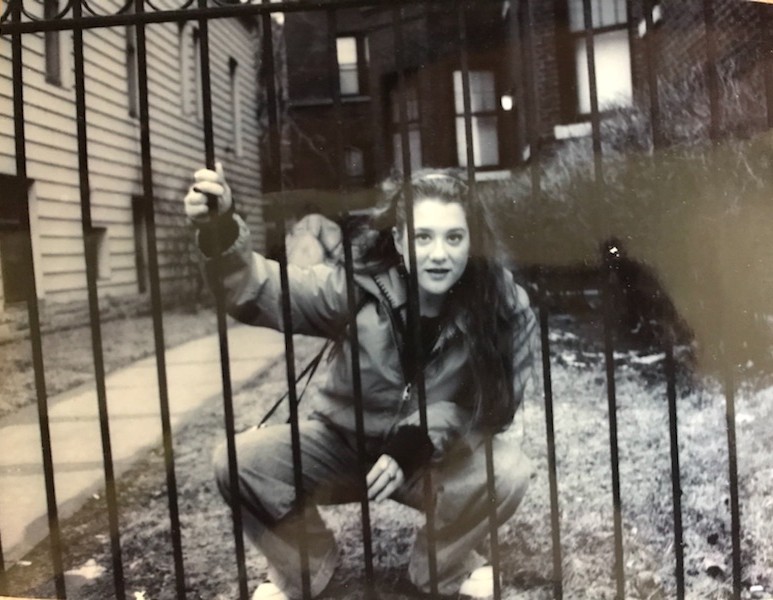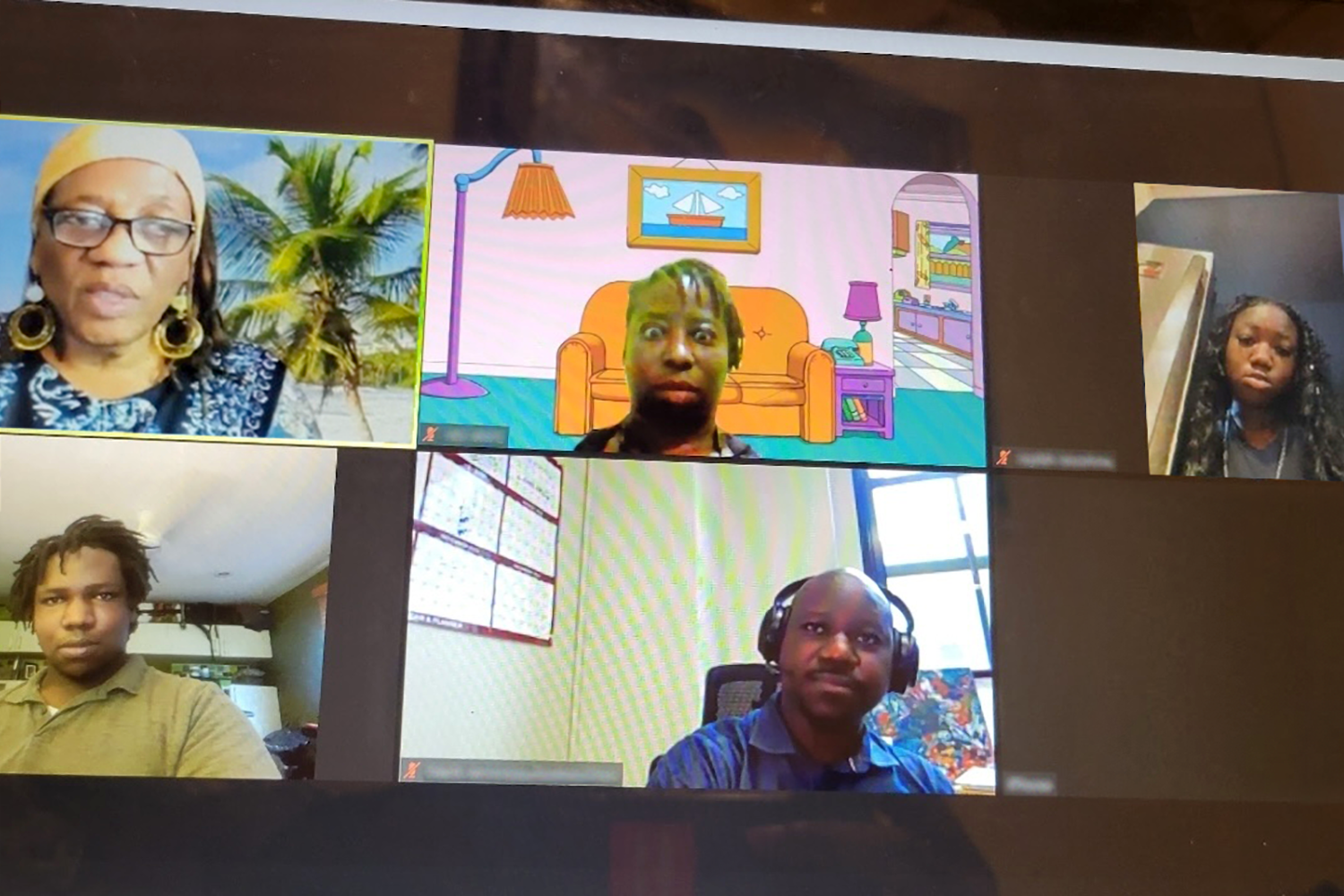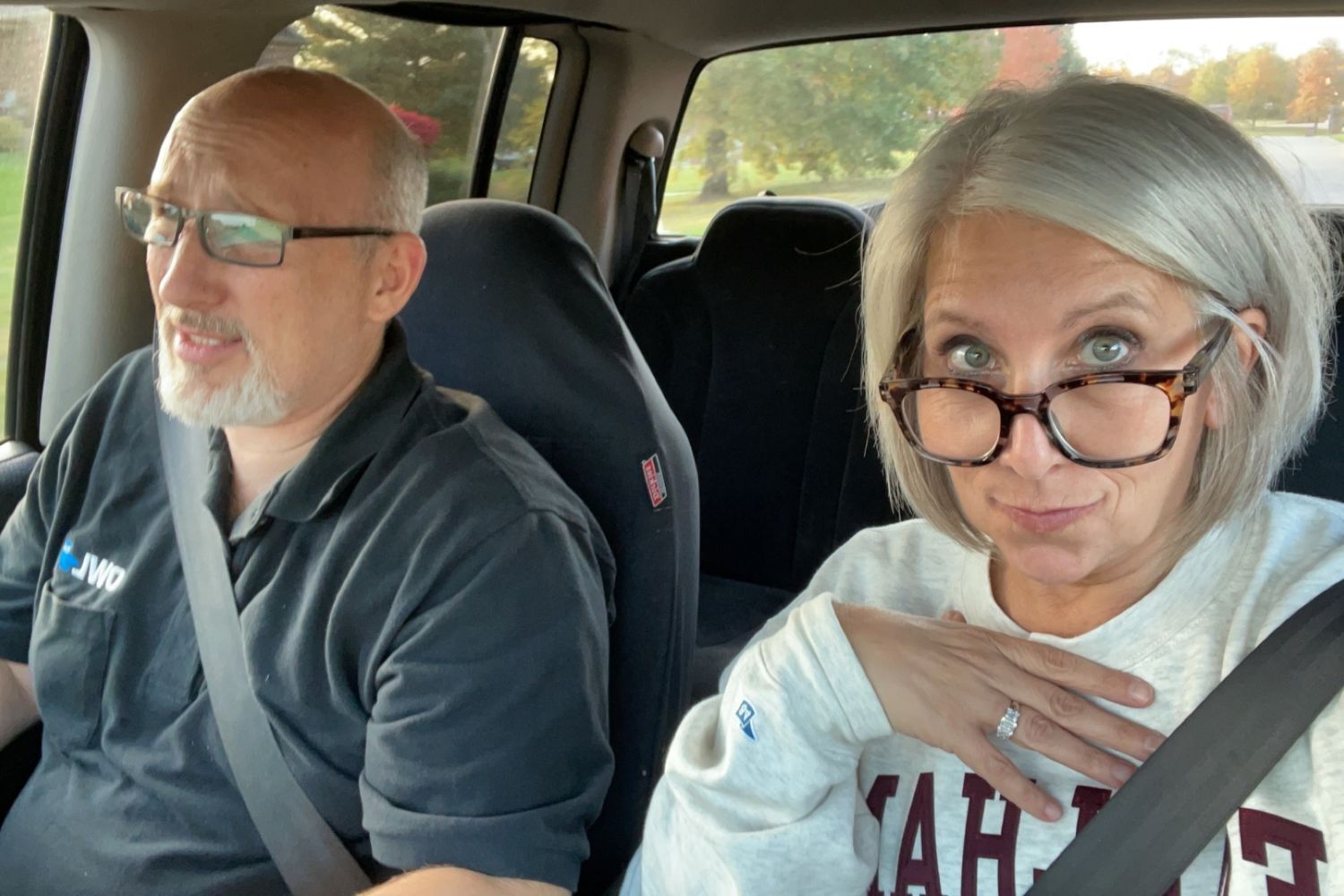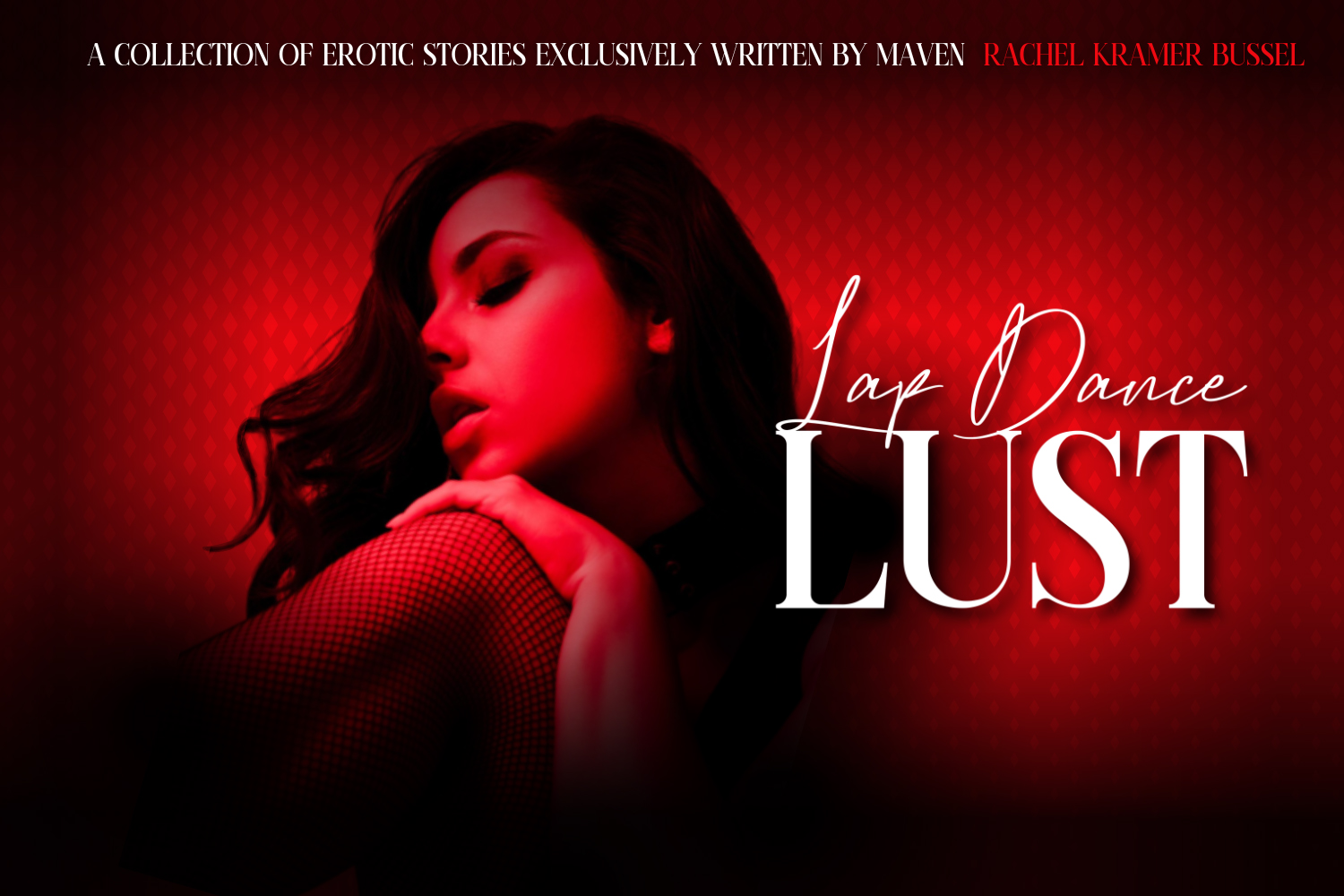
I’ve been to Venus and back: How I’m finding my voice again
I originally wrote and published this story on Medium in 2018. Now, several years later, I’m 300% more confident and inspired because I started Jumble & Flow and The Midst. But here’s how I felt beforehand …
I’ve been writing other people’s stories for so long that I’ve forgotten how to tell my own. But I know I’ve got it in me. The story is still there, I just haven’t put it into words onscreen yet. Until now.
My story began nearly 23 years ago, at age 19, in my college dorm room at Michigan State University. It was then that I pieced together the first edition of a fanzine called Venus overnight. In 1990s fanzine style — in all of its cut-and-paste with glue-sticks glory — I hacked together 10 pages of my teenage rants. The year was 1995, and the Internet wasn’t even an infant yet. I hadn’t a computer to my name, and my understanding of the Internet was limited to logging into my pilot.msu.edu email account, dial-up style, in the MSU computer lab.

Inspired by my newfound hero Gloria Steinem, armed with ammunition from my Women’s Studies 101 course, and fueled by cigarettes and Diet Coke, I scribbled my story in follow-up editions of Venus in fits and starts — the puny inkling that both Venus and my personal story were at the time. Thing was, my life was relatively ordinary. I was merely an angsty, overcaffeinated Midwestern kid who yearned to flee the suburbs for the big city, trying to find her footing in a sea of 40,000 students, on a campus surrounded largely by farmland.

For the next five years as a college student, while gaining simultaneous experience at my beloved daily college newspaper, The State News, as well as a summer internship-turned-editorship at a San Francisco magazine called SOMA, I side-hustled Venus into an emerging platform to surface the stories and creative work of other creative women like Mary Timony and Cibo Matto. Feminism was not popular at the time. I remember struggling with — but was completely determined to — explain the importance of feminism to my guy friends as well as girl friends; I felt like I needed to justify the why.

After graduating college on the change-your-major five-year plan — having sludged my way through a second senior year weighted by bouts of depression — I moved to Williamsburg before it was Williamsburg, then the Chicago burbs, followed by San Francisco, and finally to Chicago, where I hunkered down for eight years. It was in Chicago, with the help of volunteer-spirited family and friends, that we built my scrappy fanzine into a full-color, glossy, internationally distributed magazine about women in the arts and DIY culture.
We were a small but mighty collective of writers, photographers, editors, and designers. Together, we rolled up our sleeves, experimented, learned, laughed, argued, and consistently published four editions per year. The magazine grew slowly but surely, making a miniscule dent in the counterculture media world. Our covers featured indiepunk stalwarts like Sleater-Kinney and Le Tigre as well as up-and-coming comedians and musicians at the time like Sarah Silverman and M.I.A.
Venus editors included up-and-coming visionaries like Justina Blakeney, Ling Ma, Margaret Wappler, and Annie Tomlin. Contributors included Stephanie Trong, Marisa Meltzer, Tamara Warren, Melissa Giannini, Charlotte Robinson, Shaina Feinberg, and Joan LeMay (née Hiller). Interns included then-college students like Ashley Heafy, Laura Leebove, Britt Julious, Katie Hasty, and Jenny An. Advertisers included women-led companies like Renegade Craft Fair, ModCloth, Sublime Stitching, Busy Beaver Buttons, and Mr. Lady Records. As individuals, we were figuring things out, learning by doing. As a tribe, we found our voices, cultivated our creativity, and built a community. It’s true that everyone has to start somewhere, and all of these people and many more have moved onto much bigger things.
Did I know how to run a business? Hell no. Had I ever taken a business class beyond Economics 101, which I usually daydreamed through? Nope. Did I know how to find business-minded people to help me? Again, no. But, somehow, as scrappy entrepreneurs do, I figured out how to sell ads, solidify newsstand international distribution deals, train interns, launch a website, battle a swimwear company over trademark, develop a subscription program (thanks, Mom, for your help!), and always pay my bills on time.
The more we told other people’s stories, the more people read. The more opportunities we provided for others, the more people volunteered. The more people who volunteered, the more people I managed. The more people I managed, the less I wrote. I became a “business person,” though that’s not what I’d intended to become.

All in all, it was a tumultuous, sacrificial rollercoaster ride — an amazing educational experience … until it wasn’t. On the surface, I was meeting inspiring people who lived around the world, doing radio interviews about my work, and being featured in “30 under 30” lists. Behind the scenes, I was dealing with crappy healthcare, near poverty-level income, and stress from lack of strategic business acumen. By the mid-2000s, at the height of Venus’ success, while going through another depression and a rocky relationship, I’d become overwhelmed, slightly bored, confused, and unsure of what to do next. I felt like the easiest way to get out would be to quit altogether, but after the Venus staff said I “wasn’t allowed” (in a kind way) to throw in the towel, they suggested I sell the company, a concept I’d never considered.
After spreading the word that Venus was for sale and reaching out to random people I admired like Dave Eggers (he replied graciously to say “thanks for thinking of us, but we’re not as big as you might think”), receiving an offer from a West Coast indie publisher and declining because it wasn’t the right fit, in 2006, I sold the business to an acquaintance of my attorney’s. I didn’t know what I was doing, nor did I have a mentor to guide me. I sold the business for what seemed like a fair amount of money at the time, but in retrospect, was print-era peanuts. As part of the deal, I remained working as the editor in chief for a couple of years, while teaching magazine writing at Columbia College in the evenings.
The big breakup
My second attorney, who helped me close the deal, warned me in advance that selling a business and working for the new owners rarely goes smoothly and usually results in disaster. But I didn’t want to believe him. I wanted so badly to hand over the hard stuff and feel a sense of relief. The first year or so of being an employee of the new publishers was pretty good, and I appreciated earning a consistent paycheck. In general, we got along and saw eye to eye on most things, though I remember questioning one of the publishers’ blasé reactions to the bankruptcy of Tower Records, one of Venus’ newsstand retailers. “I’ve been through bankruptcy, and I bounced back,” she said. “I bet Tower Records will, too.” They didn’t. This was the emerging age of iTunes, Pitchfork.com, and Amazon.
At one point, one of the co-publishers said, “Amy, if and when you decide to leave Venus, please give us at least six months’ notice, so we have plenty of time to find your replacement.” As a naive people-pleaser, I did just that. I gave a six-month notice, wrote the job description to help my bosses find my replacement, and helped with the announcement process.
From there, everything went downhill. The publishers began their search for my replacement in earnest, and received a number of applications, including one from from a Venus editor whom I’d hired. I proceeded by providing my recommendation to hire this person as my successor, but what I didn’t realize was that the publishers were plotting to boot me early, in order to promote the new gal asap. Without going into details of how I was mistreated and disrespected from that moment forward, I’ll just say it was a rough ride. Though my mind often replays the events that occurred, it’s painful for me to put into words. I’ll never forget one night while on a break from my evening teaching job, I checked my email and there it was: a message from one of the publishers stating that they decided to replace me immediately, and that they were reducing my full-time salary to a low hourly rate for a limited time. My new function was to train my replacement.
With that devastating email at the front of my mind, I managed to make it through the remainder of the class, but beelined to a friend’s house afterward for advice. Together, we decided that I would reply to the publisher’s email by stating that this was actually a layoff, and I lined up at the unemployment office to plead my case the next day. Despite the publishers’ protests, I “won” unemployment benefits. It was embarrassing to say the least, but it was late 2007, in the midst of the financial crisis, not to mention the fall of print publishing. Basically, I was screwed. I remained in Chicago through the winter, while doing a bit of freelance writing. During that time, I learned that my replacement also got to step into my teaching gig. All in all, this was one of the most painful experiences of my life. It felt as though the baby I’d raised for 13 years was taken away from me.
What followed might have been a form of PTSD — a phase in which I actively avoided and feared listening to music and enjoying the arts for my own pleasure. At the grand old age of 32, I’d come to feel like kind of a leader and mentor but also yearned to learn from more experienced people. I needed to stretch my wings and try something new. Chicago felt less and less like it was home and more and more like it was kicking me out. I began plotting my course to move to New York, in the dead of winter. I applied for jobs, put my Humboldt Park apartment on the market while watching neighbors go into foreclosure, and visited New York a couple of times to scout apartments and interview for jobs. During interviews, I’d often be asked, “You used to run your own business and sold it. Why do you want to work for us?” A good question indeed, to which I replied, “I want to learn from others,” which didn’t win over hiring managers. Meantime, I couldn’t sell my condo for anything near what I paid for it, and eventually gave in to a short sale.
Jobless but hopeful, I struggled to secure an apartment in Brooklyn, but finally did, and up and moved halfway across the country in the snow, managing to land on my feet. Luckily, as a scrappy businessperson, I’d become quite talented at living frugally and relied on library wi-fi to hunt for work, while doing the occasional freelance gig for NYLON and TimeOut. I would later learn that my future husband was job hunting at a nearby Brooklyn library, but I wouldn’t meet him for another three years.
Building a new life in New York
Eventually, I got not just one but two job offers, and decided to take them both. I worked by day onsite for a well-known nonprofit and by night, from home, for a “digital startup arm” of HarperCollins. I believe that the more you have to do, the more you get done, so I stayed focused, managed my time intensely, and built a savings account. I earned four times my Venus salary, and lived very well, moving into a brand-new high-rise apartment building in DUMBO. From there, I went on to work for a digital agency, West Elm, and Etsy, and in some of those roles, writing my brains out, behind the guise of an anonymous brand voice for big companies. In other roles, I either ghost-wrote or co-wrote for others to help tell their stories or command an audience.
Thanks to New York, I’d redesigned my life on the other side of Venus, and though it was one of the hardest experiences I’ve been through, it was also one of the best things that ever happened to me. I ended up starting another small business, the DIY Business Association, to empower and connect creative solopreneurs. It wasn’t a profitable endeavor, but it was a great experience. Through working for other more established companies, I learned a ton about how to really run a business, in addition to digital marketing, copywriting, and networking with creatives in New York. In the finale of my six years in New York, I managed to finally stop treating dating like a sport, and met the love of my life, Martin Cuevas. Just like everyone told me might happen someday, we fell in love fast and got married within three months of meeting, our plans accelerated by his possible deployment to Afghanistan. Luckily, that didn’t happen, but we’re glad we got hitched at Bergen Street Comics. Then, after an unsuccessful year and a half of trying to get pregnant, I did a round of IVF and got pregnant with not just one but two babies!
Fast-forward to now
With twins, the four of us quickly outgrew our one-bedroom Brooklyn apartment and now live in the Chicago area, near family, who helps us tremendously. It really does take a village to raise kids, especially one who has special needs. I’ve been lucky enough to work full time for an awesome company that lets me work remotely, and while I still enjoy telling other people’s stories, I’m ready to start sharing my own again, so thank you for reading.
What happened to Venus?
I don’t feel qualified to tell the story of Venus’ final days because I wasn’t there, but I can summarize what I know in a nutshell: After a year or so with the replacement editor, the publishers decided to sell the company to another Chicago publisher. By that point, I’d done all I could to look the other way and wasn’t paying attention to what Venus was up to, until I heard from the publishers. During “the breakup,” they disrespected me, but now that they wanted to sell, they practically poured sunshine on me. It was the weirdest mindfuck. Why all of a sudden were they so nice? Because, what I failed to tell you earlier, is that the publishers hadn’t completed their buyout payment to me, which meant I still held the keys to Venus’ heart. I held the final decision-making power of whether to re-sell Venus to a new owner. When the publishers asked me to support the decision, part of me wanted to say, “Fuck You.” But the other part of me knew that other people’s jobs were at stake, so I took the time to meet with the interested party, and said yes to the deal.
I was optimistic that the new publisher could take Venus to the next level and breathe new life into its future. Unfortunately, that didn’t happen, and you can read part of the story here in The Chicago Reader. Venus folded in 2010.
Long live Venus.
Sorry, the comment form is closed at this time.





Ayun Halliday, Chief Primatologist, The East Village Inky
This was harrowing reading (with a happy ending that’s really a happy middle.)